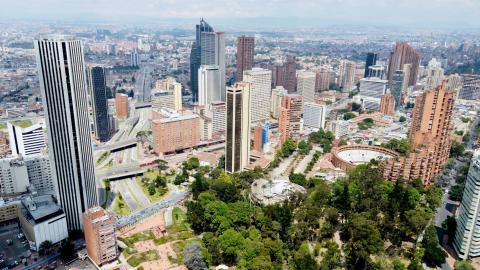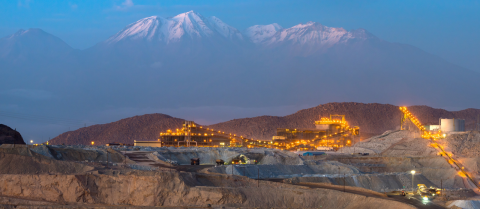
What’s the deal? Evolving practices in contract transparency
What’s the deal? Evolving practices in contract transparency
Download slides presented at the event
Read the address given by EITI Chair Fredrik Reinfeldt on contract transparency
15:15-17:00 hrs
The Contract transparency landscape within EITI is changing fast. More than half of EITI member countries have disclosed extractive industry contracts and 16 EITI supporting companies have now made statements supporting publication in some form. In the last year alone, new contracts were disclosed for the first time in Ghana, Guyana, and Malawi; the Kyrgyz Republic passed a law requiring publication of licenses; and the DRC, Guinea, and Mexico have produced state of the art contract portals.
But how can citizens benefit? What’s in it for the companies? And what should governments do as part of a comprehensive package reforms in this area? Organized by the EITI Secretariat, NRGI, OXFAM, OpenOil and Open Contracting Partnership this event will examine evolving practices and provide a forum for EITI stakeholders to discuss how the movement can use contract transparency to support robust, stable and fair deals. It will showcase two new reports on the issue: Oxfam’s 2018 company contract disclosure survey and NRGI and Open Contracting Partnership’s new research on best practices in concession awards.
Register
Registration possible until Friday 22 June, noon (CET). Please ensure that you carry ID.
Organised by

Agenda
Opening remarks:
- Fredrik Reinfeldt, EITI Chair and former Prime Minister of Sweden
Moderator:
- Jonas Moberg, Executive Director, EITI International Secretariat
Presentations:
- Isabel Munilla, policy lead, extractive industries at Oxfam America
- Johnny West, founder, Open Oil
- Gavin Hayman, CEO, Open Contracting Partnership
- Rob Pitman, Governance Officer, NRGI
Discussants :
- Gisela Granado, EITI International Secretariat
- Tom Butler, CEO, International Council on Mining & Metals (ICMM)
- Pablo Anzorena, Deputy General Director of Hydrocarbon Revenue Operations and Management, Public Credit and Treasury Secretariat, Government of Mexico
- Dr. Nicole Bieske, Head of Program, Transparency International, Australia
- Jean-François Lassalle, Senior Adviser to the President E&P at Total
About
The EITI is a global transparency standard for countries rich in natural resources. It has 51 member countries across the world, including Germany.
The EITI encourages implementing countries to publish contracts and license agreements governing oil, gas and mining operations. As contracts are legal documents that governments enter into on behalf of its people, it has been argued that citizens have the right to know the terms and conditions of these contracts. By providing a space where citizens, companies and governments can share experiences and lessons learned across stakeholder groups and national boundaries, EITI has helped these actors share concerns and potential benefits, and discuss possible approaches and ways of achieving contract transparency.
In developing the 2013 EITI Standard, the EITI, therefore, agreed that it was necessary to ask countries to document the government’s policy and practice on contract transparency as well as any reforms underway in a bid to support the national debate on the issue. Requirement 2.4 of the EITI Standard thus requires that countries document the government’s policy on disclosure of contracts and licenses that govern the exploration and exploitation of oil, gas and minerals. Documentation of government’s policy should include relevant legal provisions, actual disclosure practices and any reforms that are planned or underway. Where applicable, countries should provide an overview of the contracts and licenses that are publicly available, and include a reference or link to the location where these are published. Countries are also encouraged to disclose the full-text of any agreement to exploit oil, gas and/or mineral resources, as well as any annexes or amendments.
Related content





